Green Education
EducAid’s climate action in Sierra Leone
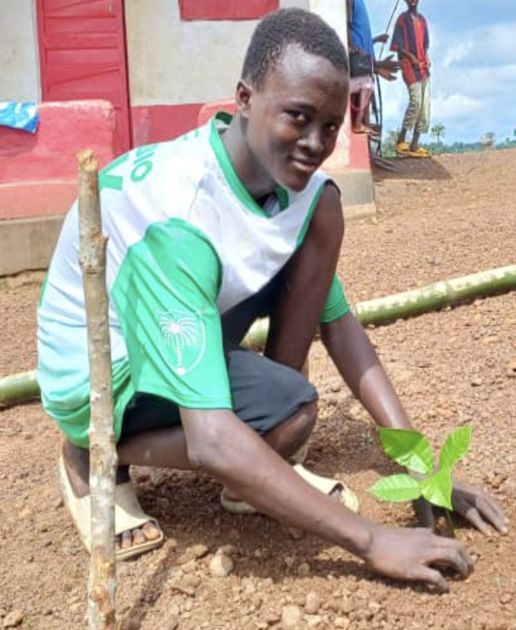
Sierra Leone is among the 10% of countries most vulnerable to the impact of climate change globally.
– New Internationalist & German Watch, 2025
Sierra Leone is among the 10% of countries most vulnerable to the impact of climate change globally (New Internationalist & German Watch: 2025). Climate-related natural disasters are already posing a threat to lives and livelihoods, human health, and food security, with heavy rains in September 2024 resulting in severe flooding, displacement, crop loss, and contributing to collapsed buildings (IMF:2024). However, with 60% of the global potential for solar electricity being held in Africa and the majority of the world’s youth projected to be on the continent by 2030, Sierra Leone is uniquely positioned to champion climate action.
To effectively respond to this, the need for innovative, community youth led solutions has never been more urgent. In Sierra Leone, EducAid is working to further climate action, embedding sustainability and environmental education into all of its work. Through multi-sector partnerships, community engagement initiatives, and youth leadership programmes, EducAid is supporting students to become the next generation of climate leaders and make a real impact on protecting the environment.
A New Generation of Climate Champions
EducAid’s climate work is grounded in the belief that education must be a driving force for social and environmental transformation. In 2024, this commitment was internationally recognised when EducAid was named one of nine global winners in the first phase of the Bloomberg Philanthropies Youth Climate Action Fund. Building on this achievement, EducAid launched a dynamic set of projects that have brought climate literacy and action into the everyday experience of students, staff, and surrounding communities.
Firstly, EducAid established Green Clubs across EducAid’s partner schools. These student-led groups serve as hubs for learning, discussion, and action, promoting sustainable practices and building climate resilience from the ground up. Each club offers students the space for developing their leadership, advocacy, and creativity.
“Every small step we take in our schools builds the giant leap the planet needs.”
Emma, Director of Sustainability and Environment at EducAid Lumley
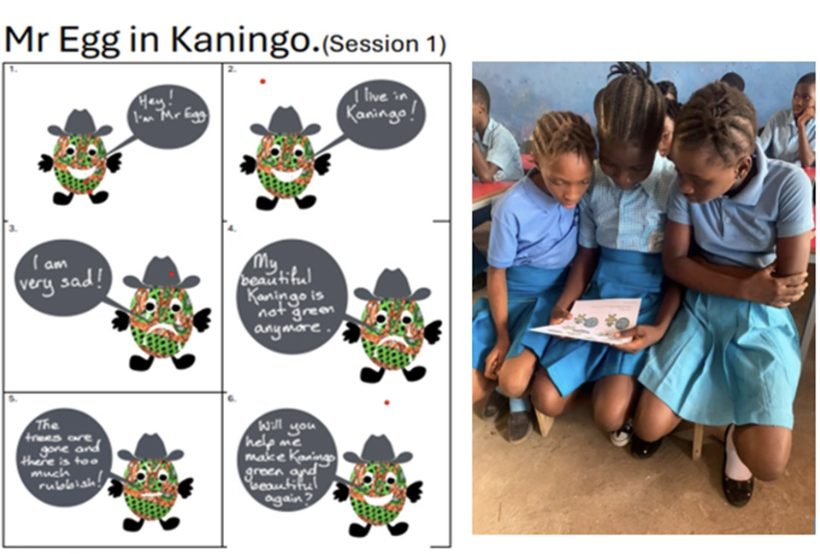
To make climate concepts more accessible across schools, EducAid introduced a character named Mr. EGG (taking the name from the EducAid Green Guardians – a group dedicated to climate education), a playful and educational tool that helps children understand their role in protecting the planet. Mr. EGG has also become a beloved figure in EducAid’s partner schools, used in storytelling, classroom discussions, and community campaigns to encourage climate-friendly behaviour.
EducAid students have also visited local organisations working on conservation, such as a recent visit to Tacugama Chimpanzee Sanctuary, where 30 students learned about Sierra Leone’s unique biodiversity and the importance of conservation.
“Our visit to Tacugama Chimpanzee Sanctuary was an awakening… Thirty of our students saw firsthand the urgency of protecting Sierra Leone’s unique biodiversity, and left inspired to be guardians of our natural heritage.“
– Francis, Green Coordinator, EducAid Sierra Leone
Community Engagement
For climate action efforts and initiatives to be effective, they need to engage the whole community. EducAid students and staff have engaged in powerful community-based initiatives, including sensitisation activities around the Kaningo Market (pictured), the distribution of handmade fabric bags to replace single-use plastic bags, and environmental clean-ups in various locations. These efforts not only improve the local environment but also strengthen relationships between schools and communities, showing how young people can be catalysts for change.
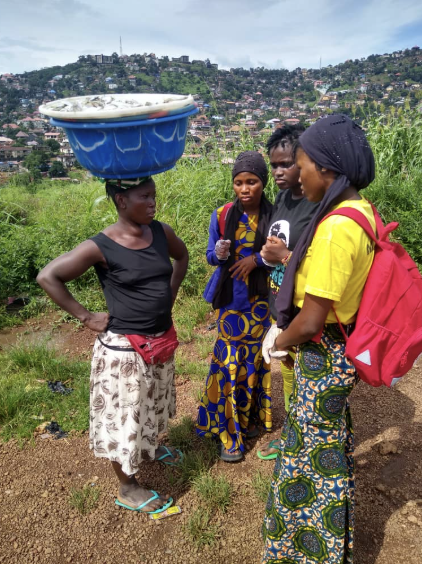
EducAid teacher Aiah shared details of a powerful environmental intervention led by the team around the Kaningo river. Working with 109 young people from the local area, the group undertook a clean-up to remove waste and debris polluting the river. As part of the initiative, they installed signs to discourage future littering and spoke directly with community members about the harmful impact of waste on both river and ocean ecosystems. Hundreds of plastic items were carefully separated from the collected waste. Thanks to a partnership with the Sierra Leone Innovation Hub, these plastics were then recycled and transformed into eco-friendly products—turning pollution into possibility and inspiring young people to lead sustainable change.
“With 109 young people from the local area, we cleaned the river and removed debris… and engaged with community members about the negative effects of waste.”
– Aiah, EducAid Teacher
Building a Culture of Sustainability at EducAid
As part of EducAid’s wider environmental strategy, EducAid has banned single-use plastics across its sites, a significant move that reinforces a culture of sustainability. Staff and students alike are embracing this policy, supported by ongoing awareness campaigns and practical alternatives.
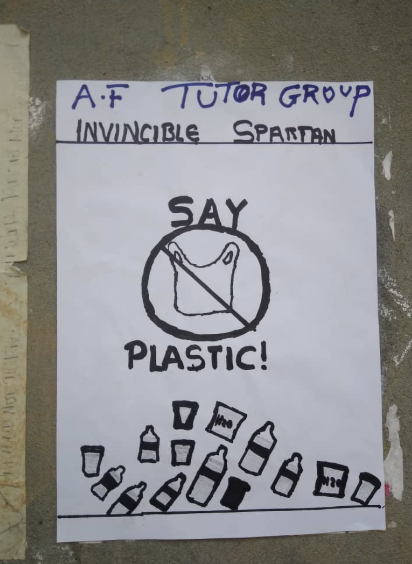
“The ban on single-use plastics across EducAid schools is timely. I hope in the future communities will adapt to the same.”
— Prince Sahr, EducAid Teacher
EducAid’s commitment to climate action is embedded in school life through engaging initiatives. For example the “Greenest Tutor Group” competition, which encourages positive environmental behaviour among student groups, and the Green Nurseries, which allow students to bring and nurture seedlings, promoting reforestation and connection to the natural world. EducAid’s Green Coordinator, Francis, says: “Of all my work, I am most excited about the Green Nurseries. Bamboo, cashew, and mango seedlings are being nurtured so we can start planting appropriate native species to make different parts of our communities green again.”
Technology is also being harnessed for sustainability. Across all of EducAid, the team has installed Ecosia, the tree-planting search engine, on staff and school laptops, turning everyday digital activity into environmental action.
Collaboration for Impact
EducAid has forged strong partnerships to extend reach and strengthen the impact of our environmental work. Across all of EducAid’s school sites, solar energy is being installed in 2025, thanks to a partnership with the Next Energy Foundation. These installations are expected to reduce energy costs by 70% and enable over 2.3 million hours of study annually.
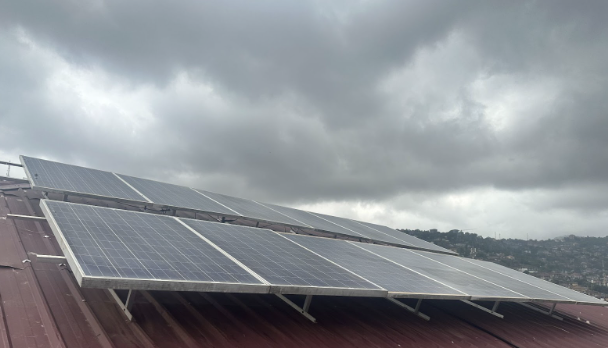
Solar energy installations are expected to reduce energy costs by 70% and enable over 2.3 million hours of study annually.
In late 2024, EducAid students participated in a six-week project by Take Action Global (TAG) as climate ambassadors, and EducAid’s schools were selected to be among TAG’s 100 Climate Action Schools this academic year. EducAid then strengthened its alliance with the Youth Climate Council, Sierra Leone, becoming a partner in the Clear Air Campaign. EducAid has additionally participated in the British High Commission’s Beach Clean-Up and the EPA’s (Environment Protection Association) Collaborating, Learning, and Adapting (CLA) Conference, which provided opportunities to lead and learn in environmental networks.
Looking Ahead
EducAid’s environmental work is driven by Sierra Leoneans working for change and a more sustainable future. Through our multi-sector partnerships, promotion of youth leadership, and integration of sustainability and climate action into all we do, EducAid is working to raise a generation of sustainably conscious young people who understand the challenges of climate change and are equipped with the tools to take meaningful action.
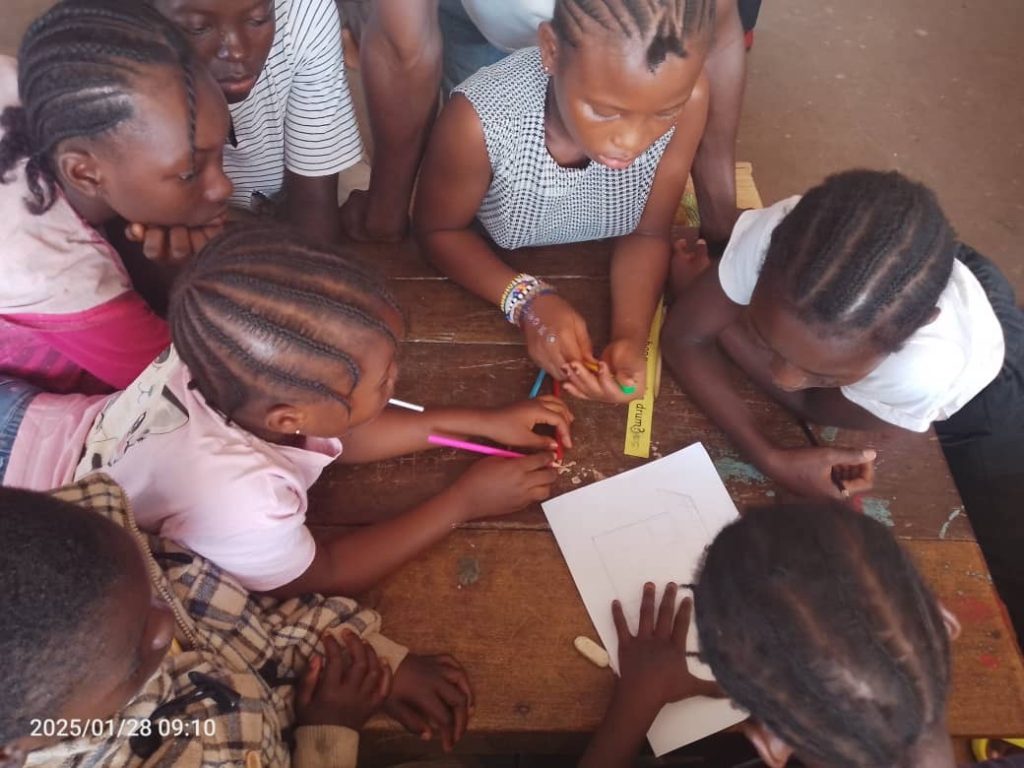
By Francis Aruna Jalloh (Green Coordinator), Miriam Mason Sesay (Country Director), Abby Couralis (Communications Manager) – with thanks to all of the EducAid Team.
Leave a Comment
You must be logged in to post a comment.
Leave a Comment
You must be logged in to post a comment.